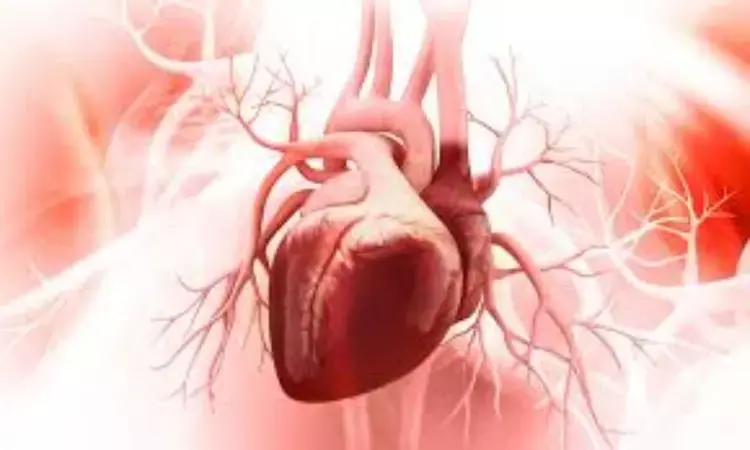- Home
- Medical news & Guidelines
- Anesthesiology
- Cardiology and CTVS
- Critical Care
- Dentistry
- Dermatology
- Diabetes and Endocrinology
- ENT
- Gastroenterology
- Medicine
- Nephrology
- Neurology
- Obstretics-Gynaecology
- Oncology
- Ophthalmology
- Orthopaedics
- Pediatrics-Neonatology
- Psychiatry
- Pulmonology
- Radiology
- Surgery
- Urology
- Laboratory Medicine
- Diet
- Nursing
- Paramedical
- Physiotherapy
- Health news
- Fact Check
- Bone Health Fact Check
- Brain Health Fact Check
- Cancer Related Fact Check
- Child Care Fact Check
- Dental and oral health fact check
- Diabetes and metabolic health fact check
- Diet and Nutrition Fact Check
- Eye and ENT Care Fact Check
- Fitness fact check
- Gut health fact check
- Heart health fact check
- Kidney health fact check
- Medical education fact check
- Men's health fact check
- Respiratory fact check
- Skin and hair care fact check
- Vaccine and Immunization fact check
- Women's health fact check
- AYUSH
- State News
- Andaman and Nicobar Islands
- Andhra Pradesh
- Arunachal Pradesh
- Assam
- Bihar
- Chandigarh
- Chattisgarh
- Dadra and Nagar Haveli
- Daman and Diu
- Delhi
- Goa
- Gujarat
- Haryana
- Himachal Pradesh
- Jammu & Kashmir
- Jharkhand
- Karnataka
- Kerala
- Ladakh
- Lakshadweep
- Madhya Pradesh
- Maharashtra
- Manipur
- Meghalaya
- Mizoram
- Nagaland
- Odisha
- Puducherry
- Punjab
- Rajasthan
- Sikkim
- Tamil Nadu
- Telangana
- Tripura
- Uttar Pradesh
- Uttrakhand
- West Bengal
- Medical Education
- Industry
Subclinical heart failure detected in three-quarters of patients of AF patients undergoing ablation: JACC

Australia: A study conducted in Australia has revealed that nearly 75% of patients undergoing catheter ablation for symptomatic atrial fibrillation (AF) also exhibited subclinical heart failure with preserved ejection fraction (HFpEF) as published in JACC: Heart Failure by Jonathan Ariyaratnam and colleagues. This finding may have significant implications for the management of these patients in the future.
Despite not displaying overt signs of heart failure, individuals with subclinical HFpEF showed indications of more advanced left atrial (LA) cardiomyopathy, reduced cardiopulmonary reserve, and a higher burden of AF symptoms. The study raises questions about whether these patients could benefit from early HFpEF therapies.
AF and HFpEF often share common symptoms and risk factors, making it challenging to distinguish between the two conditions. When patients with symptomatic AF receive rhythm control treatments like ablation, some symptoms persist, suggesting that factors other than the arrhythmia might be affecting their clinical status. Previous research on risk factor modification in AF patients indicated similarities between these participants and HFpEF patients in terms of imaging parameters, symptoms, exercise performance, and predictors of exercise tolerance.
The Australian study included 120 patients with symptomatic AF who underwent catheter ablation. Subclinical HFpEF was determined through invasive assessments of LA pressure during the ablation procedure.
HFpEF was defined as an LA pressure > 15 mm Hg, and early HFpEF as an LA pressure > 15 mmHg in response to a 500-mL saline challenge.
Of the patients, 47.5% had HFpEF, 25.8% had early HFpEF, and 26.7% had no HFpEF.
Patients with DME experienced a continuous decline in estimated glomerular filtration rate (eGFR) over the 2-year treatment period, with mean decreases of -10.4% at month 12 and -16.5% at month 24 compared to baseline levels.
Patients with extremely high or low baseline eGFR values showed more significant eGFR declines.
Those with eGFR >120 mL/min and 16–30 mL/min displayed declines of -32.0% and -37.4%, respectively, after 2 years of treatment.
Patients in the 61–90 mL/min eGFR group exhibited the smallest eGFR decline at -4.3% over the same period.
During the 2-year study period, 1 out of 52 patients (1.9%) receiving ranibizumab and 5 out of 56 patients (8.9%) receiving aflibercept initiated hemodialysis or peritoneal dialysis (P = .21).
Regression analysis showed a correlation between baseline eGFR and the need for renal replacement therapy following intravitreal anti-VEGF treatment (hazard ratio, 0.879 per 1-unit eGFR increase; P = .018).
This study highlights the potential long-term effects of intravitreal anti-VEGF therapy on renal function in patients with diabetic macular edema (DME). While further research is needed to clarify these findings, it underscores the importance of monitoring and managing renal function in individuals requiring extended anti-VEGF therapy for DME. Close evaluation for HFpEF or early HFpEF may help identify patients amenable to early intervention, especially in managing risk factors associated with heart failure. Identifying and acting on subclinical HFpEF may ultimately lead to better patient outcomes, both in terms of AF and heart failure.
Reference:
Ariyaratnam JP, Elliott AD, Mishima RS, et al. Identification of subclinical heart failure with preserved ejection fraction in patients with symptomatic atrial fibrillation. J Am Coll Cardiol HF. 2023;Epub ahead of print.
Dr Kamal Kant Kohli-MBBS, DTCD- a chest specialist with more than 30 years of practice and a flair for writing clinical articles, Dr Kamal Kant Kohli joined Medical Dialogues as a Chief Editor of Medical News. Besides writing articles, as an editor, he proofreads and verifies all the medical content published on Medical Dialogues including those coming from journals, studies,medical conferences,guidelines etc. Email: drkohli@medicaldialogues.in. Contact no. 011-43720751


